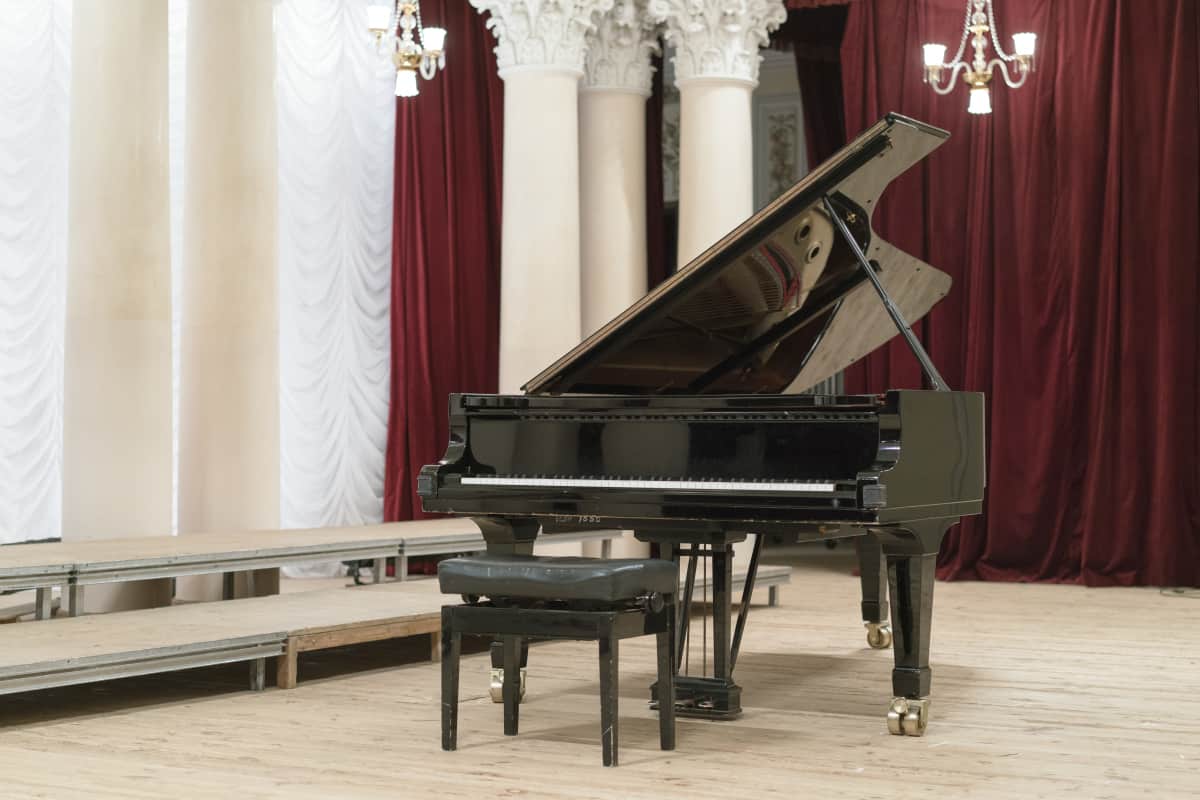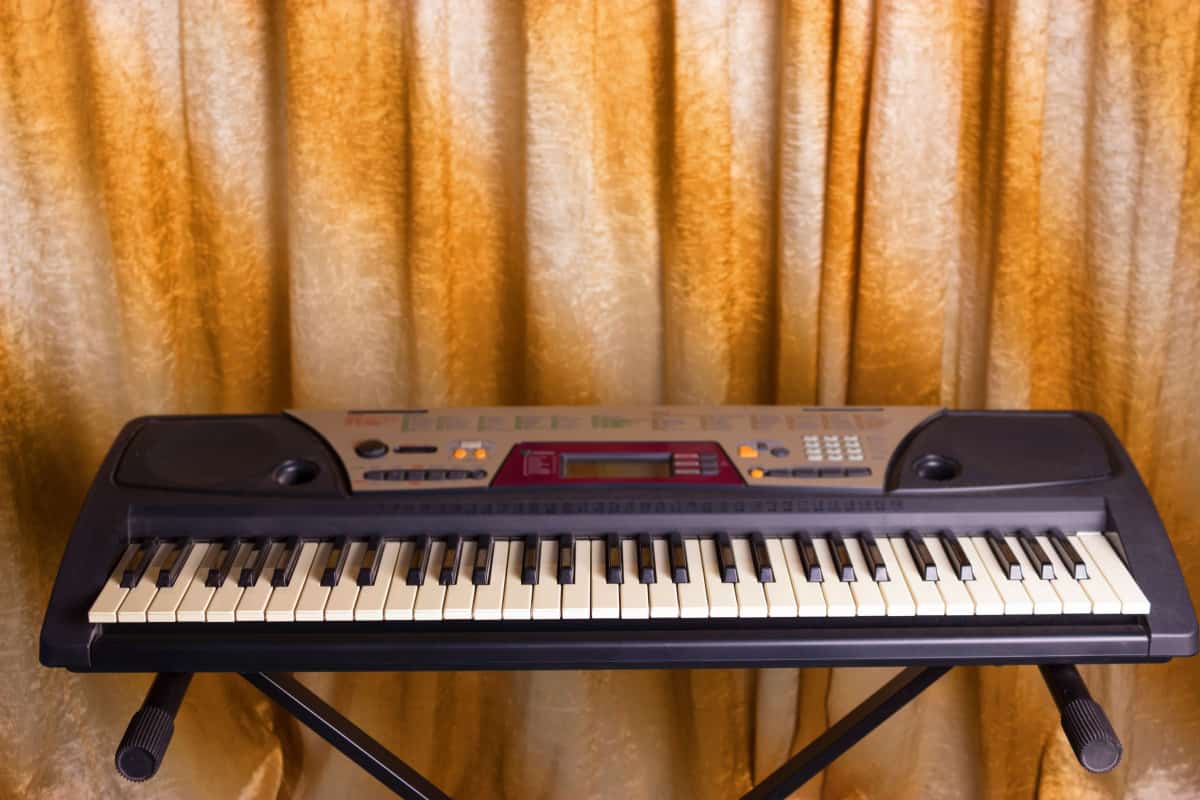Acoustic vs. Digital Pianos
Purchasing a piano is a significant investment and there are a few factors that you need to consider before you make a final decision. The first and possibly the biggest choice that you will need to make is if you want an acoustic or a digital piano. Both have their pros and cons and we will explore them in more detail in this article.
Table of Contents
What is the Difference Between Them?
An acoustic piano is often referred to as a “real” or “traditional” piano. The soundboard, which creates the deep resonant tones, and the casing of the piano are both made with wood. A full-sized piano will have 220 strings which are struck with hammers to produce the sound. An acoustic piano has many moving parts and every string must be kept in-tune to get the best results from the instrument. The origin of the name “piano” is the term “pianoforte” which translates from Italian as “soft” and “loud”. This is where the character of the sound comes from, the ability to play softer and louder notes and every graduation of note in-between those opposites.
A digital piano is an electronic instrument with an on-board computer to control the various tones and functions. There are no moving parts to worry about and this instrument will remain in-tune without any input from the pianist. Because the resonant characteristics of wood are not required to convey the sound it can be made from any material. In fact, a digital piano will have built-in speakers and a headphone jack to amplify the sound to the desired level. The best digital pianos can model the sound of a piano very accurately, but less expensive models may be lacking in realism.

Choosing an Acoustic Piano
There are a number of factors to consider when choosing an acoustic piano, but the three main areas for most people are size, budget, and loudness. Let’s take a look at each in a little more detail:
Size:
An acoustic piano will be larger than a digital equivalent because it needs strings, hammers, and a large soundboard to create the sound. So, the available space in your home will have a huge impact on your piano choice. To put this into some perspective here are some typical piano sizes explained:
A “baby” grand piano can start at approximately 5 feet (1.5 meters) long.
A concert grand piano can be up to 9 feet (2.74 meters) long.
It would be rare for anyone to have a piano larger than 7 feet (2.1) meters long in a home.
To get around this problem many people opt for an upright piano that has a different string orientation. An upright piano has the same width, but a smaller footprint in terms of length. It can be placed against a wall which is a good option for people with limited space.
Budget:
A new acoustic grand piano can start at a price of $2,000 rising to $50,000 for the best examples. An upright piano can be a more reasonable investment but it is still an expensive purchase. Shopping for a second-hand piano is an option but it must be checked by a qualified piano technician. Buying a used acoustic piano with a cracked soundboard and missing parts can lead to an expensive repair bill. Buying a second-hand piano from a private seller will mean there is no warranty which is a risky proposition. If you have the available budget, it’s advisable to get a new model and choose a reputable piano dealer.
Volume:
An acoustic piano is going to be much louder than a digital instrument and it cannot be turned down by twisting a volume knob. Placing the piano in a room with plenty of soft furnishings, cushions, drapes, and sofas can help to soften the sound a little. But, playing or practicing quietly with a pair of headphones is simply impossible. If you live in an apartment with thin walls, this will limit the times that you can play and your playing time. This can be frustrating when you’re trying to learn how to play and you may need to set a time for playing when your neighbors are not home.
The Pros of an Acoustic Piano:
- An acoustic piano can generate beautiful deep and organic tones.
- Many acoustic pianos are beautiful instruments that enhance the aesthetic appeal of your home.
- A good piano is an heirloom that can stay in a family for many years.
The Cons of an Acoustic Piano:
- An acoustic piano is loud and you cannot play privately.
- This type of piano can be an expensive purchase.
- Traditional pianos are larger and heavier than digital alternatives.
- Regular tuning is needed to get the most out of the piano.
- The piano case must be cleaned regularly to control those dust prone surfaces.

Choosing a Digital Piano:
Generally speaking, a digital piano will be less expensive to purchase and small enough to fit in most homes. Many pianists don’t like digital models because they don’t sound natural, but this is constantly improving. Some of the latest models have a very authentic sound and complex articulations are certainly possible.
Some digital pianos are formidable instruments that are not designed to be moved regularly. Other models are highly portable which makes them a great option for pianists that want to play concerts or practice in other locations. It’s easy to imagine that all digital pianos have plastic keys, but some have better quality wooden keys that are very pleasant to play.
When it comes to the quality of sound there is a large difference depending on the exact digital piano you choose. The more expensive models tend to have better sound modeling technology to emulate the piano sound accurately. Cheaper alternatives may use a sample set to generate sound which will sound unnatural for many pianists.
The Pros of a Digital Piano:
- A digital piano is more affordable than an acoustic instrument.
- This type of piano will always stay in-tune.
- Private playing is possible thanks to the built-in headphone jack.
- Some digital pianos are highly portable.
- Different instrument sounds are often included.
- Some models have tutorial settings to help new players learn how to play.
The Cons of a Digital Piano:
- The feel of the instrument is not comparable to a traditional piano.
- Less expensive digital pianos can sound unnatural.
- A cheaper digital piano will not add to the aesthetic appeal of your home.

